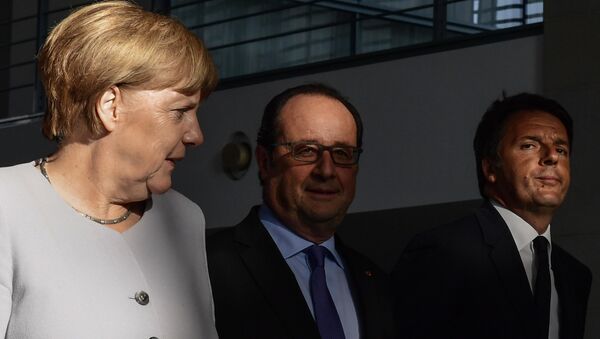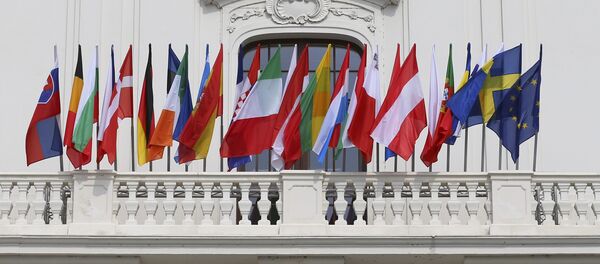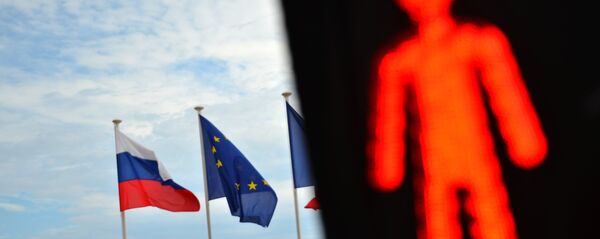Brussels wanted new sanctions over the Russian military campaign in Syria. Despite the fact that previously Moscow’s actions in Syria were not a big concern for Europe, recently Berlin and Paris blamed Russia for the deterioration of the humanitarian situation in the besieged Syrian city of Aleppo.
France has taken a hardline stance on the issue. Initially, French leader Francois Hollande said that talks with Russia President Vladimir Putin on Aleppo did not make sense. However, in mid-October, Hollande confirmed readiness to continue talks with Moscow. During the summit in Brussels, Hollande said that it was crucial to start talks to end the crisis in Syria. Germany has also called for a firm stance toward Russia.
Nevertheless, the Brussels summit showed the lack of unanimity between EU states over a hardline policy towards Moscow.
There has long been a rift within the bloc over anti-Russian sanctions, said Vladimir Bruter, an expert at the International Institute for Humanitarian and Political Studies.
Austria, Spain, Italy and Greece voiced against new sanctions at the summit, with Italian Prime Minister Matteo Renzi leading the pushback. Renzi is known for having good relations with both Putin and United States leader Barack Obama. He could persuade his colleagues that new sanctions against Moscow would make no sense.
"We should do everything we can to come to a peaceful resolution of the Syrian crisis. But it’s hard to imagine that this could be related to anti-Russian sanctions," he told journalists after the summit.
"Renzi came as the leader of those opposing sanctions against Russia. As a result, the Berlin-Paris axis gave up," an article in the Italian newspaper Il Foglio read.
By doing this, Renzi restored the independency of Italy’s foreign policy, it read. This was also a signal to certain sectors of the Italian economy damaged by anti-Russian sanctions.
"However, this surprising move is unlikely to isolate Italy because in this situation Renzi can rely on other European partner," according to the article.
EU leaders tried to persuade Serbia to join anti-Russian sanctions. Serbia is now in accession talks with Brussels. However, the Serbian Foreign Ministry responded that the country will not make decisions that contradict with its national interests.
"From the beginning it was clear that the EU was not ready to mount pressure on Russia. Currently, the EU is incapable of conducting a coordinated foreign policy," said Sergei Utkin, a senior analyst at the Institute of Global Economics and International Relations.
He noted that in the near future positive shifts are unlikely between Russia and the EU because the key troublemaking issues, Syria and Ukraine, "cannot be resolved at an EU summit."
Washington has repeatedly asked Brussels to prolong sanctions. However, the presidential election is nearing in the US, so it will be the next US president who will form the strategy on the issue.
The real revision of the EU sanctions policy against Russia is unlikely before next year. France and Germany will hold elections in 2017. The new leaders are expected to launch dialogue with Moscow.




